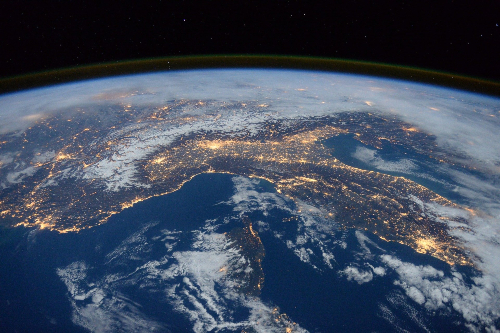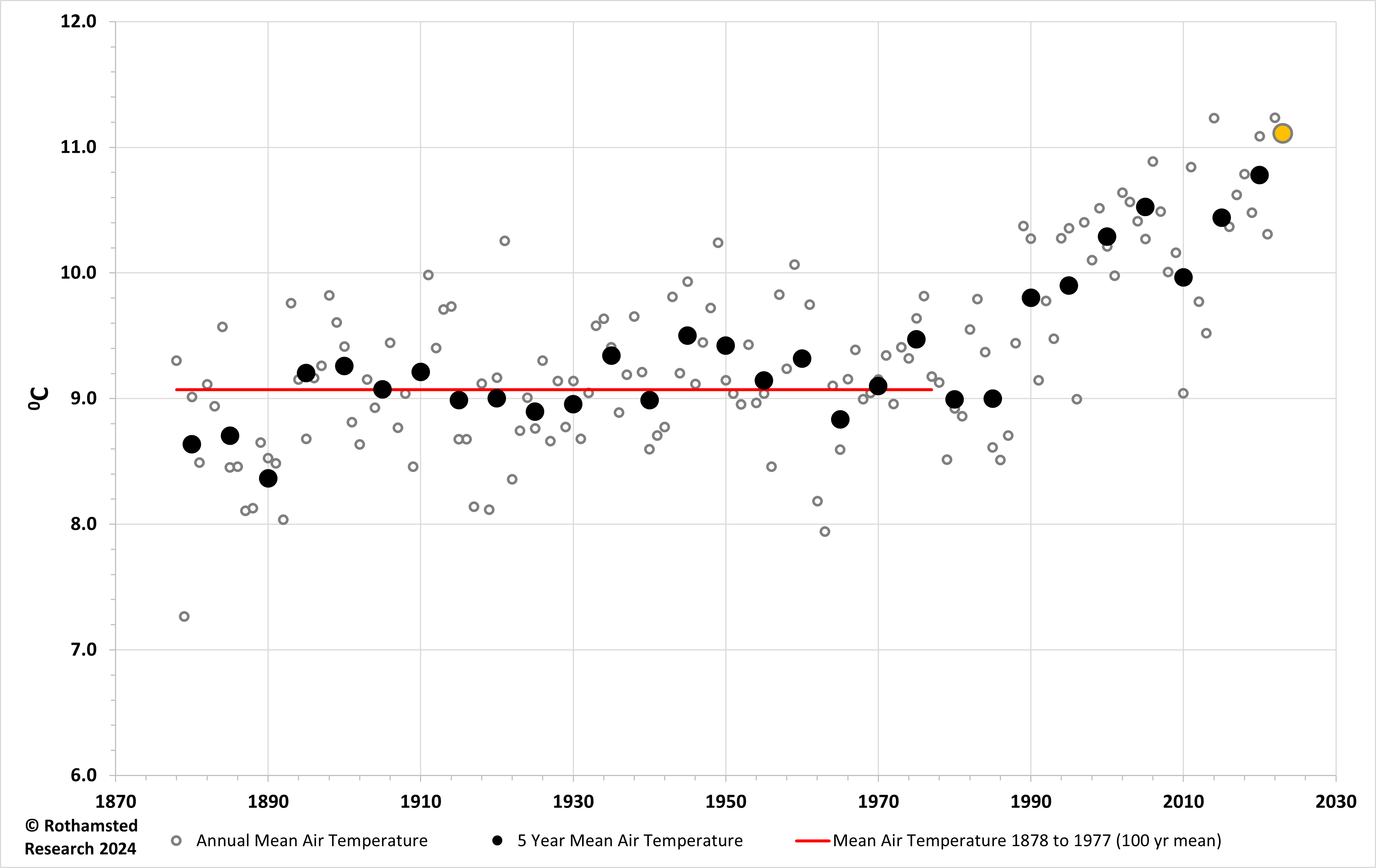 There is now little doubt that the Earth's climate is warming. In this tutorial we will explore the facts about climate change, and what effects a change in climate may have.
There is now little doubt that the Earth's climate is warming. In this tutorial we will explore the facts about climate change, and what effects a change in climate may have.
What is climate change?
Earlier we said that climate is the average weather experienced by a place over a long time period (say 30 years). For any given place on the Earth, climate varies over timescales ranging from tens of years to thousands of years. Such changes are due to natural causes such as changes in solar activity and long-term changes in the tilt of the earth and its orbit around the sun. However, the term climate change generally refers to changes since the early 1900s.
We've seen already that both natural and human factors affect the Earth's climate. The IPCC is the Intergovernmental Panel on Climate Change. In a report published in 2018, the IPCC stated that: 'Human activities are estimated to have caused approximately 1.0 °C of global warming above pre-industrial levels, with a likely range of 0.8 °C to 1.2 °C. Global warming is likely to reach 1.5 °C between 2030 and 2052 if it continues to increase at the current rate. (high confidence)' (source: 2018 special report Global Warming of 1.5 °C, 2018).
The IPCC issued a press release on 9 August 2021 titled 'Climate change widespread, rapid and intensifying'. In it, Panmao Zhai, Co-Chair of an IPCC working group stated: “Climate change is already affecting every region on Earth, in multiple ways. The changes we experience will increase with additional warming.
How is the climate changing?
The global average temperature has risen by around 1°C (source: UK Met Office). In the UK, the 30-year period from 1991-2020 was 0.9 °C warmer than the 30 years from 1961-1990 (source: UK Met Office).

The graph above shows data from the ECN Rothamsted site in Hertfordshire, England. The points are 5-yearly averages of annual average (mean) air temperatures recorded at Rothamsted. The data are from 1878 to 2023. Temperatures were relatively stable over the period up to the late 1980s. Since then temperatures have generally been higher than the long-term mean (the red line, which is the 100-year mean for 1878-1977). The data suggest progressive warming over the period, and particularly in the last 30 years.
(Data courtesy of Rothamsted Research Ltd. This graph is updated annually on the Electronic Rothamsted Archive data page. Citation: Sarah Perryman, Tony Scott, Chris Hall (2024). Dataset: Annual Mean Air Temperature at Rothamsted 1878-2023 Electronic Rothamsted Archive, Rothamsted Research, Harpenden, UK DOI : https://doi.org/10.23637/rms-RMAAtemp-03).
It doesn't sound like much: what's the problem?
Warming of about 1 °C doesn't sound like a lot, but scientists have warned that we must limit global warming to less than 1.5 °C to avoid the most serious effects of warming. These apparently small temperature rises are expected to lead to rising sea levels and more extreme events like droughts and heavy rain. Back in 2007 the IPCC reported '... widespread melting of snow and ice and rising global average sea level ...' (IPCC 4th Assessment Report, 2007).
More recently the IPCC stated that 'Impacts on natural and human systems from global warming have already been observed (high confidence). Many land and ocean ecosystems and some of the services they provide have already changed due to global warming (high confidence).' (2018 special report Global Warming of 1.5 °C, 2018). It is, however, hard to say for certain that any single 'event' (a drought, a flood or the spread of an invasive species, for example) is the result of climate change.
In the UK, the direct effects may be less severe, though in July 2022 the UK experienced a new maximum temperature record of 40.3°C. Such temperatures can lead to heat-related health problems and even deaths. We may experience more frequent extremes of weather such as storms, heatwaves and heavy snow. We are also all vulnerable to the indirect effects of climate change, such impacts on food harvests, pressure on water resources, human migration or the movement of pests and disease-carrying organisms.
Global action
Climate change impacts will affect many millions of people. Communities living in low lying coastal areas, or in parts of the world which are already prone to droughts or flooding could be the worst affected. Since 1995, the United Nations has brought together representatives from most countries around the world at climate change conferences. Each is known as a Conference of the Parties of COP. At these meetings, the latest information about climate change is discussed and countries try to agree on collective action, such as setting targets on emissions of greenhouse gases.
COP26, which took place in October/November 2021 in Glasgow, ended with all countries agreeing the Glasgow Climate Pact to keep the ambition of limiting global warming to below 1.5 °C alive and to finalise the outstanding elements of the Paris Agreement (agreed at COP21 in Paris in 2015).